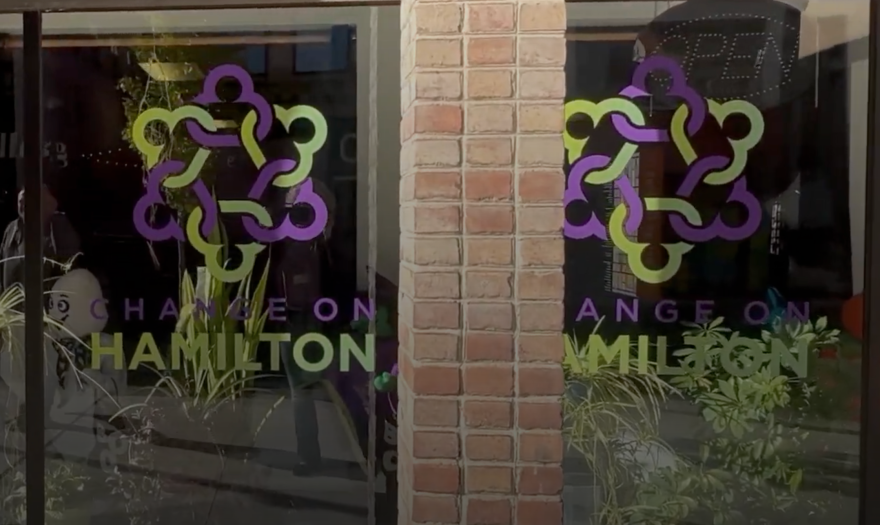ALLENTOWN, Pa. — With the help of opioid lawsuit settlement money, an addiction recovery center in Allentown is set to expand its capacity, services and physical space in Center City.
Change on Hamilton, which has operated out of a shared space on the first floor of 927 Hamilton St. since 2021, is set to relocate to a newly renovated second floor in the same building.
"The move will allow for more dedicated programming, while the original floor is being prepared to house Journeys, a recovery program for pregnant and postpartum women."Change on Hamilton release
It will celebrate a "grand re-opening" on Dec. 6, with an open house from 1-3 p.m. The event will be open to the public.
There will be facility tours, personal stories from community members and interviews with local advocates.
On that day, staff of the center are set to be available to meet anyone who shows up and connect them with resources.
According to a news release from the center, its services are open to people in any stage of addiction.
The move will allow for more dedicated programming, while the original floor is being prepared to house Journeys, a recovery program for pregnant and postpartum women, Change on Hamilton said.
Change on Hamilton, in addition to its previous services for those in recovery such as treatment referrals (it's not an addiction treatment center, but can refer clients to them), Naloxone distribution and fentanyl test strips — now will be able to offer more expansive services.
Some of those services include CareerLink, a program that matches people in recovery with jobs and provides resources to help them be successful in the interview process.
Also, free computer access, case management and recovery-oriented activities such as arts and crafts, movie nights and yoga.
All services at Change on Hamilton are free, courtesy of Lehigh County Drug and Alcohol.
Molly Stanton, assistant administrator at Lehigh County Drug and Alcohol, said the new services have a focus on harm reduction and building community.
Community
Some of the services Change on Hamilton's new space will offer, are simple, but vital, Stanton said.
"When you're newly sober, it's really hard to find healthy avenues to do that," she said.
"Having a place where you can build that support that's healthy, that isn't going to lead you, you know, in a direction that's putting you back to substances, becomes really, really pivotal."Molly Stanton, assistant administrator at Lehigh County Drug and Alcohol
"So we really wanted to expand our offerings because things like our sober Super Bowl parties, sober game nights and things that, are very, very popular with our community, and they've been telling us that they want and need more of that."
Stanton, who started her career as therapist before going into addiction services, said it's often a huge challenge for those recovering from addiction to form meaningful friendships.
That can cause problems — including a risk of relapse, she said.
"When you're in addiction, a lot of people's lives begin to revolve completely around drugs or alcohol, and those are the people that are more at risk for really falling through the cracks when they're stepping between an old group of friends that might be good people, but they're just not good for you anymore."
"So having a place where you can build that support that's healthy, that isn't going to lead you, you know, in a direction that's putting you back to substances, becomes really, really pivotal."
Harm reduction
Harm reduction is defined by the federal agency Substance Use and Mental Health Services Administration as follows:
"Harm reduction emphasizes engaging directly with people who use drugs to prevent overdose and infectious disease transmission; improve physical, mental, and social wellbeing; and offer low barrier options for accessing health care services, including substance use and mental health disorder treatment."
"When I talk to our first responders, like our police and our EMTs, and when I look at the data that comes my way, more often than not, when a first responder arrives on the scene now to a Lehigh County overdose call, a bystander has already administered Naloxone."Molly Stanton, assistant administrator, Lehigh County Drug and Alcohol
Stanton said Pennsylvania has seen a 24% decrease in opioid overdose deaths in 2024 — which she credits partially to work her office is doing.
Most notably are Naloxone kits, like the ones Change on Hamilton distributes, that can reverse the effects of opioid overdoses in a matter of seconds.
"When I talk to our first responders, like our police and our EMTs, and when I look at the data that comes my way, more often than not, when a first responder arrives on the scene now to a Lehigh County overdose call, a bystander has already administered Naloxone," Stanton said.
"And that's really important, because if someone is going into respiratory arrest because of their substance use and has overdosed, time is really of the essence."
Harm reduction strategies are often met with pushback. Some critics say public health agencies should prioritize pushing people to stop using drugs entirely, instead of trying to make it safer for them to do drugs while they are still in active addiction.
'It takes repeated contacts'
Proponents of harm reduction strategies, like Stanton, say that type of perspective can be impractical.
"So we actually do a lot of harm reduction as a culture than we know about," she said. "We just call it different things.
"Seat belts in cars, for example, are harm reduction. They're a simple preventative measure that keeps you from dying in a car accident."
"You can't help people if they're dead."Molly Stanton, assistant administrator, Lehigh County Drug and Alcohol
Stanton said it's not realistic to expect people in active addiction to stop taking drugs immediately and go to treatment with a perfect success rate, which reinforces the need for harm reduction measures like Naloxone kits and Fentanyl testing strips.
"Harm reduction, in substance use circles, is the understanding that people building motivation to get into recovery is not something that happens immediately. It takes time," Stanton said.
"It takes repeated contacts, often from professionals and peer supports, for people to build the motivation or to overcome the fear of going into treatment.
"So given the increase in lethality of drugs in our drug supply, with fentanyl and xylazine, and probably even more coming our way, it becomes really important to keep people alive long enough for them to actually build motivation and get treatment."
Stanton said, "You can't help people if they're dead."
More information about Change on Hamilton's grand re-opening is available on its website.


